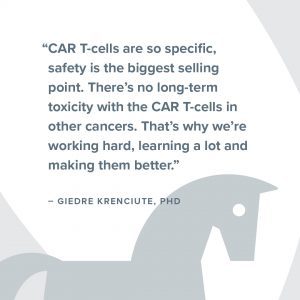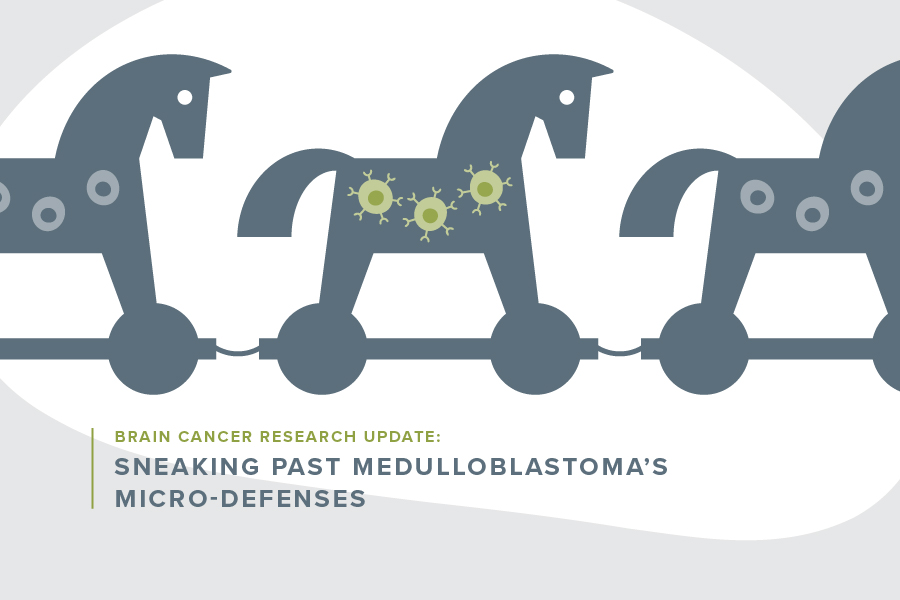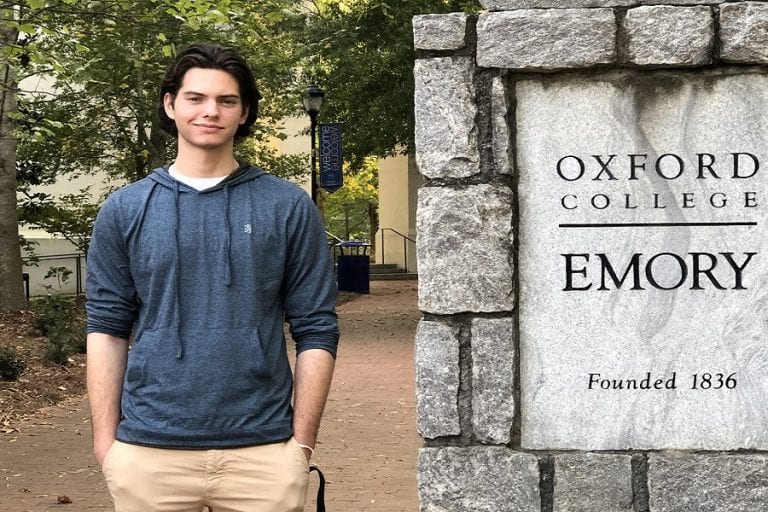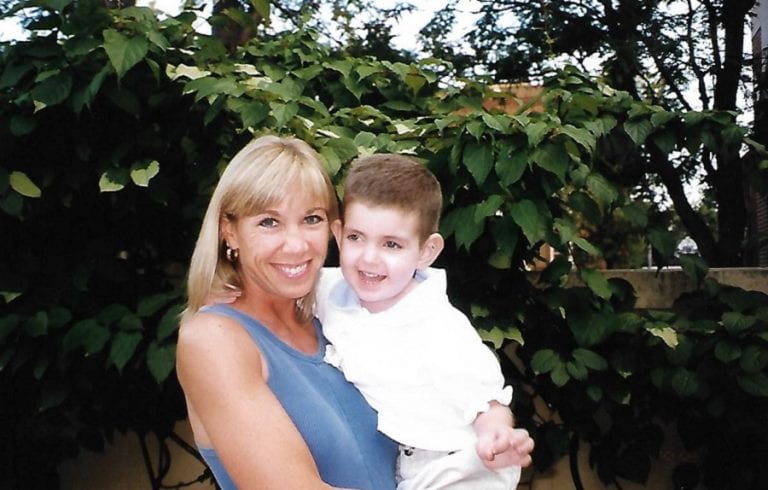Tumors like medulloblastoma are so complex and powerful, they have their own mini- immune systems that can wreak havoc on a child.
CCRF Emerging Scientist Award winner and St. Jude Children’s Research Hospital scientist Giedre Krenciute is developing a Trojan horse of sorts to sneak past medulloblastoma’s armed defenses and kill tumor cells. She plans to change a patient’s special immune system cells, called T-cells, by transforming them into CAR T-cells or cells that can recognize and kill the cancer.
“Using the patient's own immune system to fight cancers is one promising approach to improve outcomes for pediatric cancer patients who do not benefit from current therapies,” she said.
But, it’s a lot harder than it sounds. That’s because medulloblastoma tumors, like many cancers in the brain, have multiple defenses set up. In fact, CNS cancers as a whole are so good at overcoming patient’s immune systems, they kill children more than any other childhood cancer.
By coupling the improved T-cells with chemotherapy, Dr. Krenciute thinks she can overcome all the defenses and deliver a potent treatment directly to tumor molecules (antigens).
Medulloblastoma tumors have a lot of different molecular combinations (a bunch of antigens), so she has to make sure the CAR T-cell is developed to be a specific match for that combination. Each medulloblastoma has a unique way of progressing, depending on its molecular make-up.
“We have to try to find an antigen that defines that tumor,” she said. “That’s the challenge. We always have to think about the next step. We need the CAR T-cells to understand the next level.”
Once a patient’s CAR T-cells are reeducated to recognize tumor cells, it’s time for them to overcome the next challenge.
Medulloblastoma tumors have cells called macrophages that can “eat” and outlast the CAR T-cells. They act as a shield or first line of defense for the tumor. This hostile tumor microenvironment eventually tires out the CAR-T cells, and they are overcome.
But, Dr. Krenciute plans to boost the CAR-T cells adding chemotherapy to her therapy. The chemotherapy will hopefully break down the tumor’s macrophages, clearing the way for CAR T-cells to directly attack the antigens.
So far, she and her team have identified five different medulloblastoma antigens to target.
“We want an array of different ones. We want to know, is this antigen universal for all medulloblastoma tumors, or just one?” she said. “Toxicity is also a concern.” She said it is important to test and move forward with the least toxic option. “We will engineer different CAR T-cells and test which one of them best controls brain tumors,” she said. “We will also study the effects of the brain tumor immune system on CAR T-cells.”
Currently, kids with medulloblastoma undergo surgery and radiation or chemotherapy. While more than 72 percent of patient’s survive at least 5 years, many suffer long-term complications like intellectual impairment, neurological complications, hearing loss, and more.
“CAR T-cells are so specific, safety is the biggest selling point,” said Dr. Krenciute. “There’s no long term toxicity with the CAR T-cells in other cancers. That’s why we’re working hard, learning a lot, and making them better.”
CAR T-cells have proven incredibly effective in cancers like leukemia. She believes with hard work, the same could be said for brain tumors in the future.
Dr. Krenciute’s next step, funded in part by CCRF, will help her develop disease and animal models that closely represent the complexity of brain tumors in order to develop improved CAR T-cell therapy.
“The one-year grant from CCRF will definitely help me to generate preliminary data and will help me apply for bigger grants,” she said.
Kids Deserve Better, Safer Treatments
We believe kids fighting cancer deserve treatments that both eradicate their cancer and allow them to live full, healthy lives. With only 4% of federal cancer funding dedicated to childhood cancer, your support is crucial to finding safer, more effective therapies for kids battling cancer.



